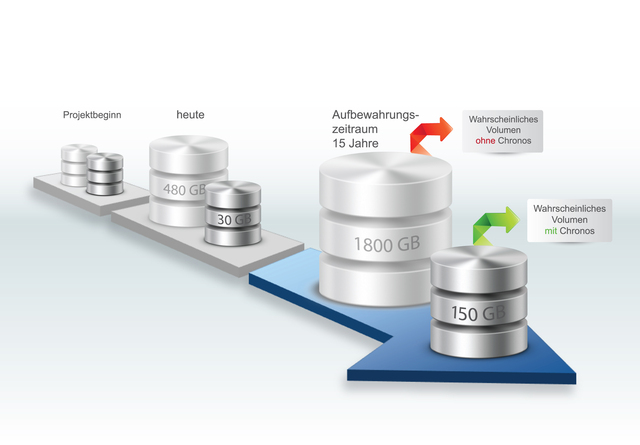Self-written solution versus standard software: three risks which should be ruled out in database archiving
February 28, 2013 (PRLEAP.COM) Technology News
With standardized database archiving, companies can curb the flood of data and guard against data loss at the same time. Self-written solutions, however, do not offer much security when it comes to being able to access data in case of emergency. The three main risks of choosing the supposed alternative for database archiving have been compiled in a summary by CSP GmbH & Co. KG, based on their many years of consultation experience. "In the face of the continuous increase in data quantity, many companies are already sensitized to the storage cost issue. IDC expects an annual doubling of data quantity in the coming years, most of which will be unstructured data. However, the flood of data is not only a cost driver, but also a considerable risk factor – if data cannot be stored safely, this can very quickly lead to financial losses", says Kilian Götz, Product Manager of Database Archiving at CSP, of typical challenges. Files are no longer readable
Above all, self-written solutions carry the risk of files no longer being readable after a certain amount of time. This is particularly true with "insert scripts", for which files are swapped out as text files. As schema changes are often made in databases, these files cannot be restored later without some work. Also problematic is the reading of very large data files in the database. Large files, for example starting from two gigabytes in Windows environments, can no longer be edited by standard SQL tools. This means users can no longer reliably access this data. In Unix systems, working with larger files is generally possible. The CSP experts have discovered, however, that handling large files generally complicates tasks. Last but not least, the character sets used often present obstacles. Finally, such cases can only be solved with painstaking manual detail work, dissecting files, re-adapting the data and then archiving it with standard software such as Chronos, which is designed for long-term audit-proof archiving.
SLAs cannot be upheld
If you guarantee your customers backup times, self-written solutions can quickly lead to a case of breach of contract: whenever backup times are not upheld or backups cannot be performed in general, the situation can quickly escalate. The technical problem can then lead to production standstills in industrial operations, for example, to prevent process data from being lost. It is also possible the database will no longer react, meaning quality and information transfer can no longer be ensured. If the service level agreements (SLAs) arranged are not upheld or no proof can be given that they have been upheld, contract penalties can quickly accrue. And of course, such incidents generally lead directly to the loss of customers and damage to your reputation.
Audit-proof systems are not guaranteed
The majority of data held in databases is subject to compliance requirements and must be kept in an audit-proof manner. The Product Liability Act, the GDPdU, the GoBS, Basel II, the Sarbanes-Oxley-Act, the Code of Federal Regulations (CFR 17) as well as the Federal Register Part II (FDA) regulate archiving times for data which must be stored. If certain proof cannot be given, tough penalties can result: for example, court cases, fines, costs and damage to reputation due to product recalls or loss of customers in general to due shortcomings in quality are common, among others.
"The high number of possible risks shows that data in databases must really be archived with higher security in the long-term. Standard solutions offer the best possible security against data loss. Solutions such as Chronos also ensure that older data is accessible at all times, even if the database has changed drastically in the meantime. No company should go without this level of security", comments Kilian Götz in conclusion.
About CSP:
CSP GmbH & Co. KG was founded in 1991 and specialises in innovative software solutions for manufacturing companies. The company provides its customers with comprehensive advice and support in addition to the implementation and customisation of standard solutions. In connection with its new Chronos product range for database archiving, CSP offers companies from all industries a broad spectrum of services.
CSP has numerous international industrial reference customers. Deutsche Telekom, Lufthansa Technik Logistik Services, E.ON IT, ING Diba, AVS, Bitmarck Holding, BMW, Audi, Global Foundries und R + V Versicherung, among others, all rely on CSP solutions.


